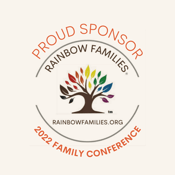
Many years ago, when choosing an egg donor was still a new way to build a family, I had a conversation with a mother of twin boys. She was over the moon in love with her sons and so very happy that she had decided to seek donated eggs in order to have them. She was eager to talk about every aspect of her egg donation experience except one: her egg donor. When I asked her about her egg donor her harsh response stunned me. “Oh her,” she said, “She was just selling her eggs.”
“Selling her eggs.” The words startled me then and bothers me now, even years later. I know that money is involved in egg donation and can understand how someone unfamiliar with all that is involved might initially see it as “selling eggs.” However, anyone who knows anything of the egg donation process—and this fortunate mom was surely among those “anyones”—knows that donating eggs is demanding and that women become egg donors for multifaceted reasons.
I often think back to an experience a friend of mine had as an extra in a movie. The film had a big name star and as I imagine is the case in most films, there was a lot of downtime on the set. One of the other extras complained to the star about all the time they were all spending sitting around and received this reply, “the sitting around is what we get paid for; the acting is free.”
So how does this relate to egg donation? From my perspective, the time, effort and commitment are what egg donors are paid for; the eggs are free. I often offer up the example of nurses to clients who express concern about payments. I remind them that people don’t go into a caring profession like nursing for the money but few if any, nurses would work for free. As you begin or continue your search for an egg donor, I encourage you to look past the issue of payment and focus on what are the qualities in donors that draw you to them. Surely, egg donation is a very costly process but the women involved are, for the most part, not selling their eggs.
In talking with countless women and men looking at egg donors, I have found that peoples’ processes for choosing a donor are remarkably similar. Most people seeking a donor begin with general appearance, seeking a woman who resembles the mom-to-be in the ways that people notice first—height, build, coloring, shape of features. At the start, people also look at fertility, seeking a donor whose ages, history of donations and/or motherhood indicate that she is likely to be fertile.
Once intended parents have initially vetted donors by appearance and fertility, they move on to personality and interests. In my experience, everyone wants a happy donor who is content with her life. Intended parents seek women who are goal oriented, confident and upbeat. Most look at family medical history and especially mental health history. But beyond all these factors, what I see again and again is “IP’s” focusing on character. “I like what she wrote about her family. I love it that she chooses her mother as the person she admires most.” Or, “I love that she loves animals. I believe that people who love animals are caring people” or, “I appreciate the fact that she is humble. She has clearly accomplished so much but she doesn’t brag about herself.”
From a sea of women, one or two or maybe a few more women emerge as likely “candidates.” I encourage people to try not to get their hearts set on a “one and only.” The donor you want may not be available. Or she may not pass her screening. I had one couple recently choose a woman who had successfully donated three times only to have their medical program reject her. Whenever possible, it is good to have a few choices and to believe that any one of them can be the right choice for you and for your family.
Sometimes people find an egg donor who is right for them early and easily. For others, it takes time and there can be disappointments along the way. Either way, I have found that when people find their way to a donor they feel great about. When I ask them how they chose their donor and what they like about her, all go directly to personality and character, focusing on traits they identify with as well as ones they are eager to graft on to their family tree. The burdens of the high costs of egg donation may come up in our conversations but none criticize their donors being paid.
Save
Save
Save
Save
Save

.png?width=150&height=150&name=Open-Door-Badge_Beyond-Inclusion-LGBTQ-101%20(1).png)
